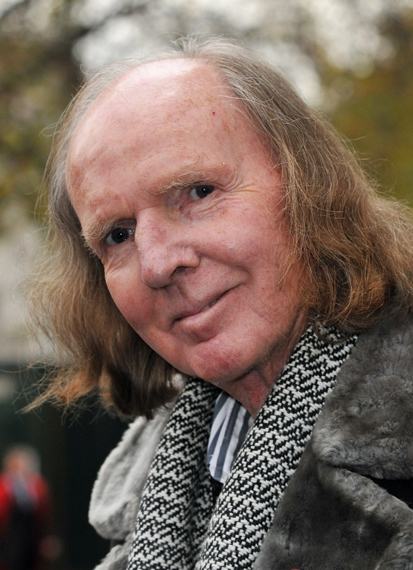When I first met John Tavener in 1977, he was still largely known for his dramatic cantata The Whale, which had been performed at the Proms in 1969. By then both John and his Whale had acquired considerable glitter, partly by having the veteran newscaster Alvar Lidell associated with it, and partly through its eventual connection with the Beatles, who had issued it on their Apple label in 1970. He never wrote anything quite like it again, though one notices that even this early and iconoclastic piece is based on the bible.
I always wondered what his now famous religious sense really consisted of. I never fully bought the unsmiling preacher, which became his public persona in later life, since in private he was never like that. I originally met him because he had wanted to know more about the 16th-century composer and possible forebear of his, John Taverner, hoping in some degree to recreate Taverner’s style on his own terms. There was no religious impulse in this, nor was there in the many discussions we had concerning the music I commissioned from him. Our favourite activity was choosing texts to set by the Alexandrian Greek poet Constantine Cavafy, not a man known for his religious beliefs. This led to a set of miniatures that has only been performed once so far, entitled Tribute to Cavafy. In my opinion this is not only a masterpiece, it also shows a different side to John’s genius from his more monumental later works.
His interest in the divine was more instinctive than formal. He loved miracles. For him, as for a medieval monk, they were everyday possibilities. He was quite capable of embellishing perfectly mundane conversations with the sudden memory of a saintly body, long buried, which had been disinterred uncorrupted and with a fragrant smell. When we were considering which Cavafy poems to use he rang in great excitement to say that the volume had leapt off the shelf and fallen open at the perfect choice.
The Greek sun, taken with some retsina, was good for his spirit in moderate doses; and there was something more generally about the Greek world that played into an intensely emotional side of his thinking. The references didn’t have to be to God — his Sappho Fragments of 1981 are among the most refined things he wrote. He could have gone further with that style, but equally enthralling to him was the mystical world of Greek (and Russian) Orthodoxy, ultimately to him a mood, a kind of scented picture, from which so much of his output flowed.
He said recently that the image of him as a joyless old hermit, surrounded by candles, had been imposed on him by the media. I’m not sure I entirely buy that either, as anyone who has seen the exquisite chapel he created out of a stable at his home may agree. But in the end this was his official look, which only conveyed a small part of his character. It also tended to play down his sheer technical ability as a musician: he was capable of writing some of the most mathematically involved passages available to a composer, known as canons, partly as a result of having studied the music of the renaissance master Josquin des Prez. The last example of this particular knack has yet to be heard. Just before he died he wrote a Requiem (called Requiem Fragments) for me to conduct on some big occasion next year, in order to help celebrate his 70th birthday, which would have fallen on 28 January. Its last 20 pages or so consist of a triple-choir canon, which on paper looks as complicated as these things ever get. If I had been able to ask him how he had conceived this incredible texture — as I did in a similar passage years ago in his Ikon of Light — he would have replied that it just came out like that. It was another miracle.
One of John’s leitmotifs was God as light. He relished the way light could not be contained, as God’s benign spirit cannot. When he was free to express some part of this conjunction he could write masterpieces. Sometimes these were very long and sometimes very short. We’ll hear them all during 2014 — an anniversary year all the more poignant now — and I am certain none will be more affecting, Mozart-like, than this Requiem.






Comments